Monthly Archives: July 2021
My Participation in “Preserving and Transmitting Memory to Anchor Otherness,” a Webinar Organized by Rabita Mohammedia des Oulémas
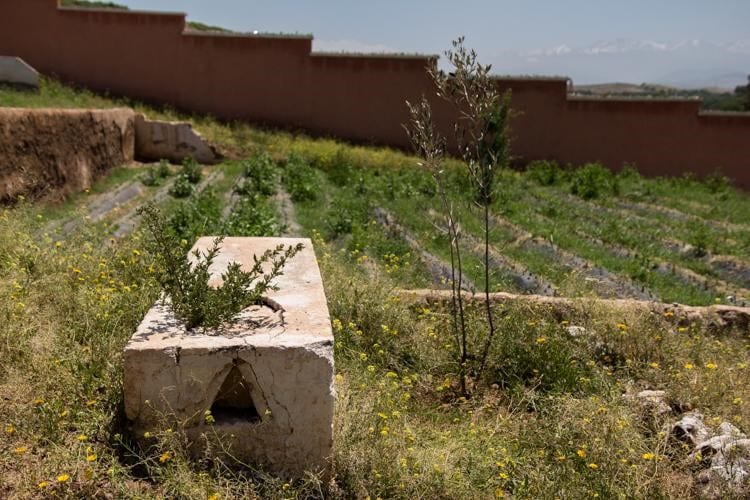
By Hajiba Boumasmar, HAF Program Coordinator Our country is full of history and cultures that connect between two communities, those of Moroccan Muslims and Moroccan Jews. We work together, constantly trying to preserve our culture so that it is not lost to new developments the world over. I want to share my experience at the
مؤسسة الأطلس الكبير و برنامج الأمم المتحدة الإنمائي في مشروع بيئي بإقليم تارودانت
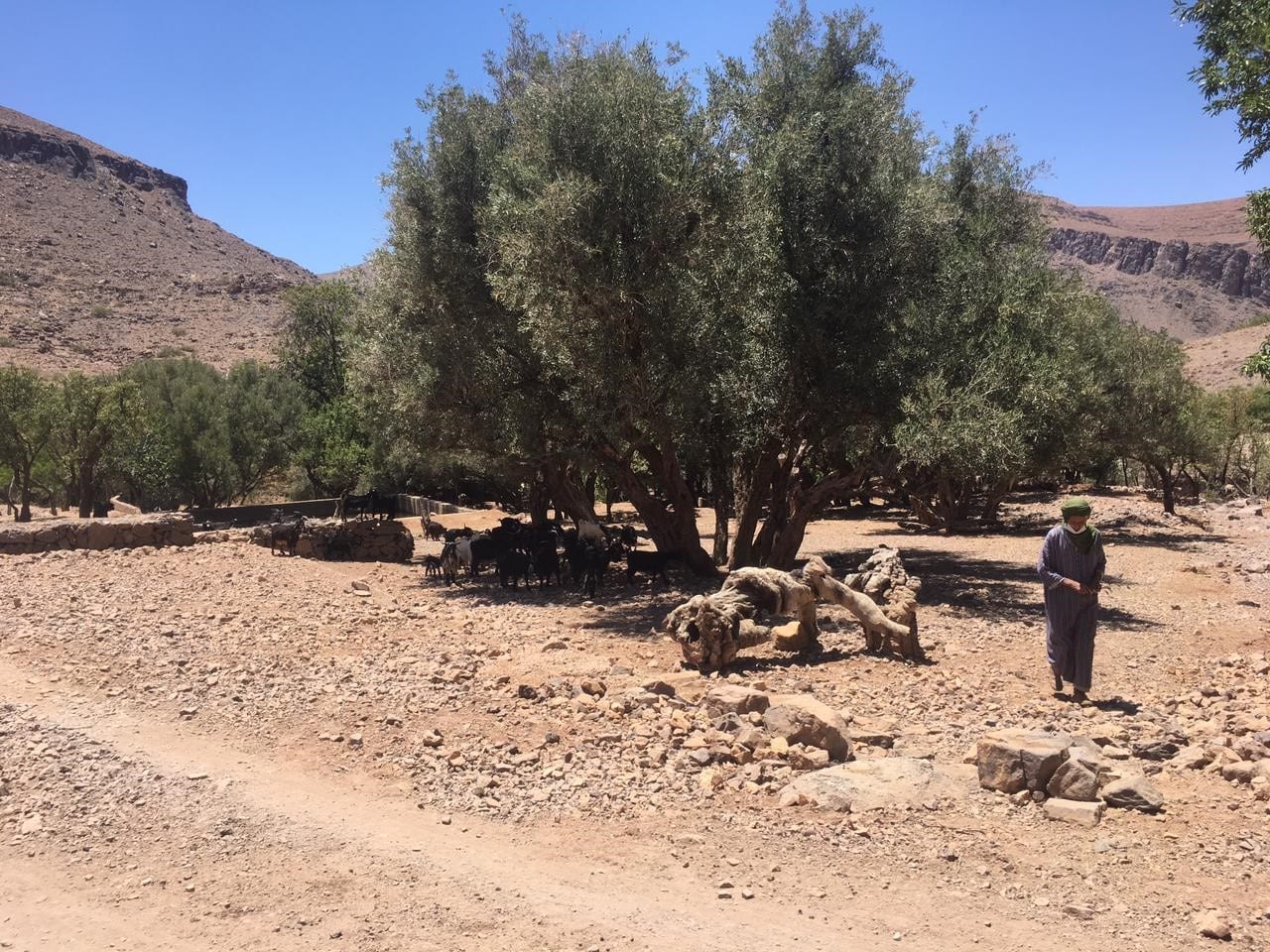
من إعداد: يوسف الطاهري منسق المشاريع بالمؤسسة لا يختلف اثنان على أن قطاع الفلاحة مساهم أساسي في توفير فرص الشغل، خصوصا في العالم القروي، اذ تشكل المساحة الصالحة للزراعة بالمغرب حوالي 8.7 مليون هكتار، وتمثل فيها الحبوب حوالي 57 بالمائة من المساحات المزروعة. هيمنة هذه الاخيرة على المساحات الفلاحية المزروعة ، جعلت الفلاحة ضعيفة التنوع،
Sub-Saharan African Migration into Morocco
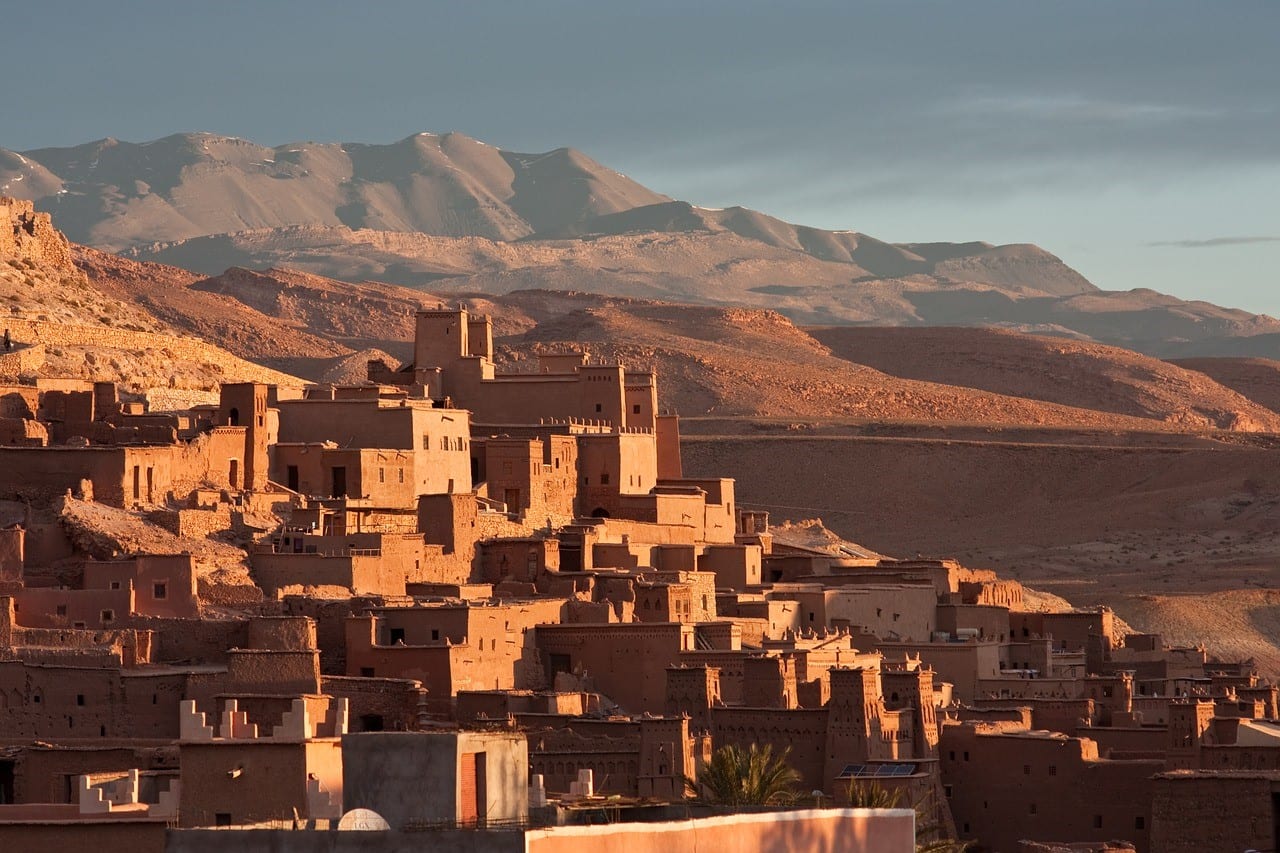
Sub-Saharan African migration into Morocco, Modern Ghana. By Max Berengaut Entering Morocco, Sub-Saharan African migrants find themselves at a crossroads. There is the promise of an economic future waiting for them in Europe, but the path to it is perilous. They require either an assurance of asylum status or some familial relationship with a European
Reflection: My Two Days of Imagine Phase Learning
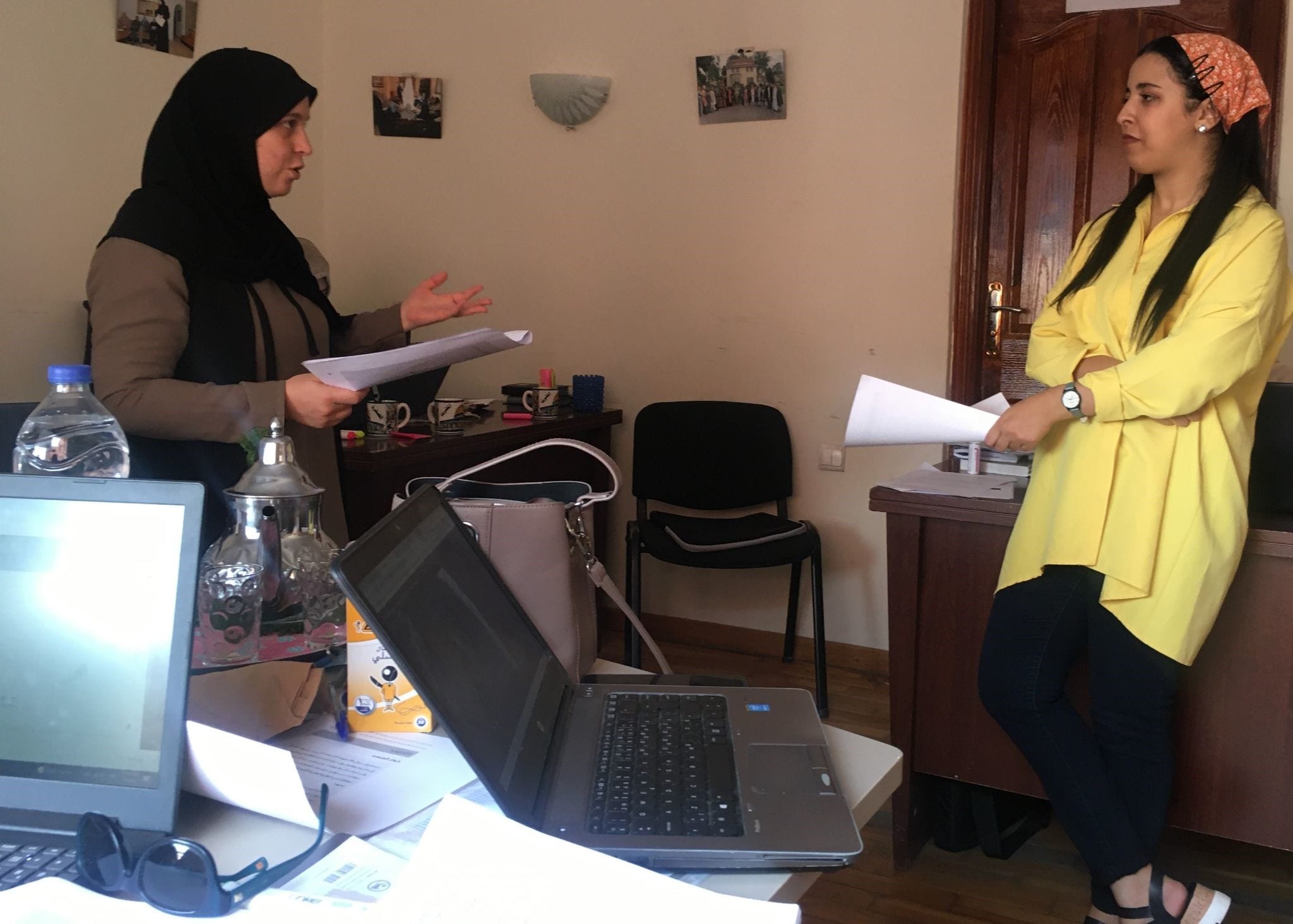
By Sanae Benaadim Imagine Empowerment Facilitator HAF Office Manager & Volunteer Coordinator Thinking back to the beginning of my volunteering at HAF, I attended the first Women’s Empowerment workshop. I was an excited, conscientious, and avid learner who was motivated by understanding the unknown. I loved exploring myself using the IMAGINE workshop tools long after
Remembering the South African Leader’s Legacy on Nelson Mandela International Day | July 18, 2021
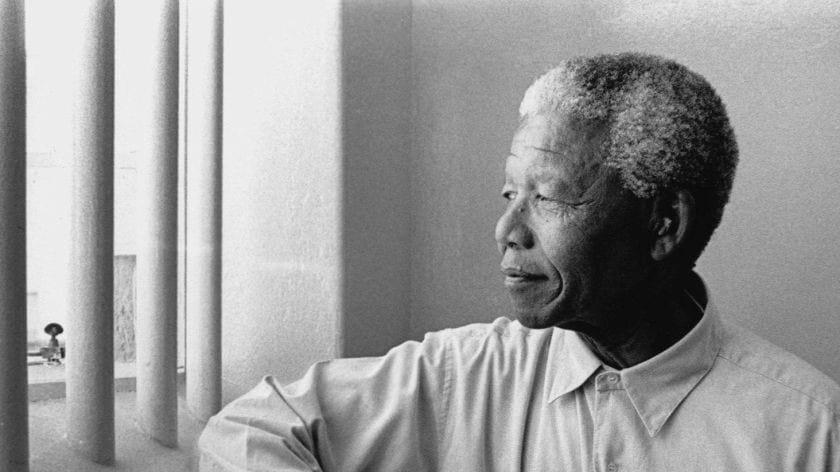
By Marij W Janjua, HAF UT-Austin Intern “Political freedom alone is still not enough if you lack clean water. Freedom alone is not enough without light to read at night, without time or access to water to irrigate your farm, without the ability to catch fish to feed your family. For this reason, the struggle
Productively (and Joyfully) Meeting (Again) Members of the Aguerzrane Women’s Cooperative
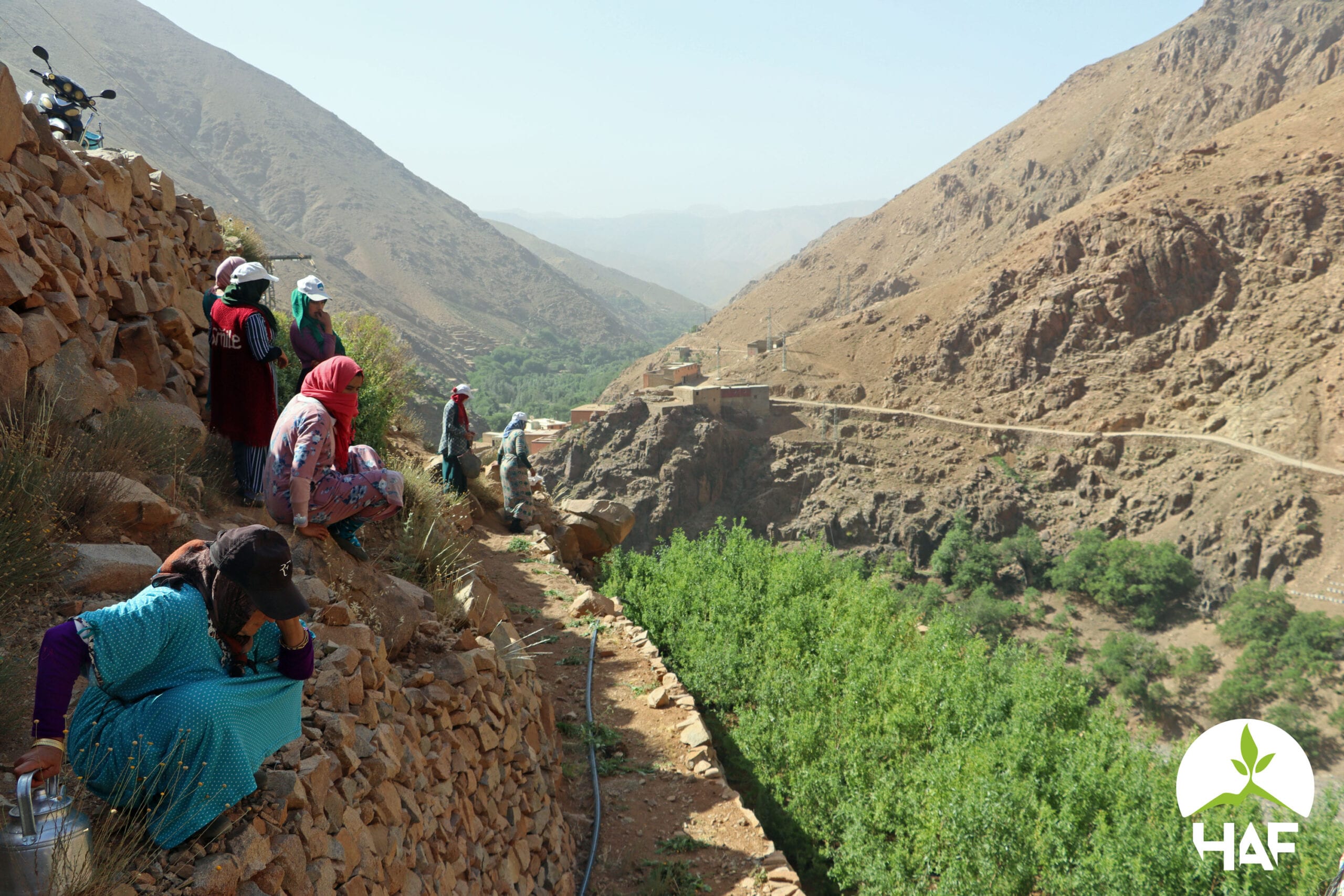
By Dr. Yossef Ben-Meir HAF President The High Atlas Foundation (HAF) implements the USAID Farmer-to-Farmer Program (F2F) in Morocco. As part of this volunteer initiative team members visited the members of the Aguerzrane women’s cooperative located in the Toubkal Municipality of the Taroudant Province on Thursday the 8th of July. It was a follow up
The Importance of Plants in Religious Art

The Importance of Plants in Religious Art, San Diego Jewish World. By Prof. Ellen Hernandez MARRAKECH, Morocco — What is the message conveyed by the representation of plants in religious text? What do the images that these references bring to our minds tell us about a people and a society? These are questions posed by
HAF Translates Academia into Women’s Empowerment Policy
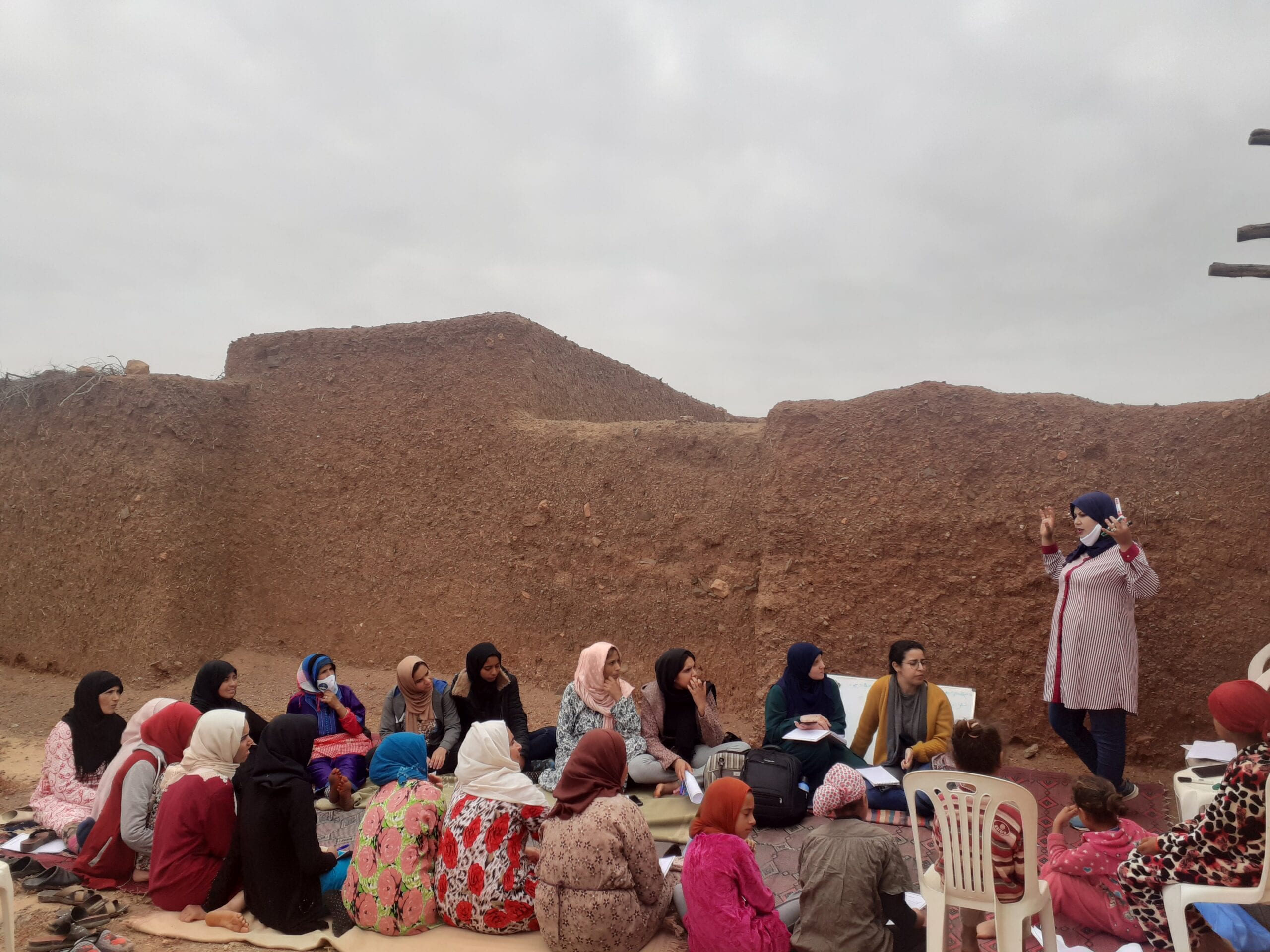
By Samirah Jaigirdar HAF Intern – Student at Connecticut College As a person grows, they take on a societal identity which will dictate what they wear, how they act and speak, and how they feel about themselves in the context of their society. As gender is learned, it can be assumed that the cultural constructs
A Moroccan Woman’s Burden: Water Scarcity
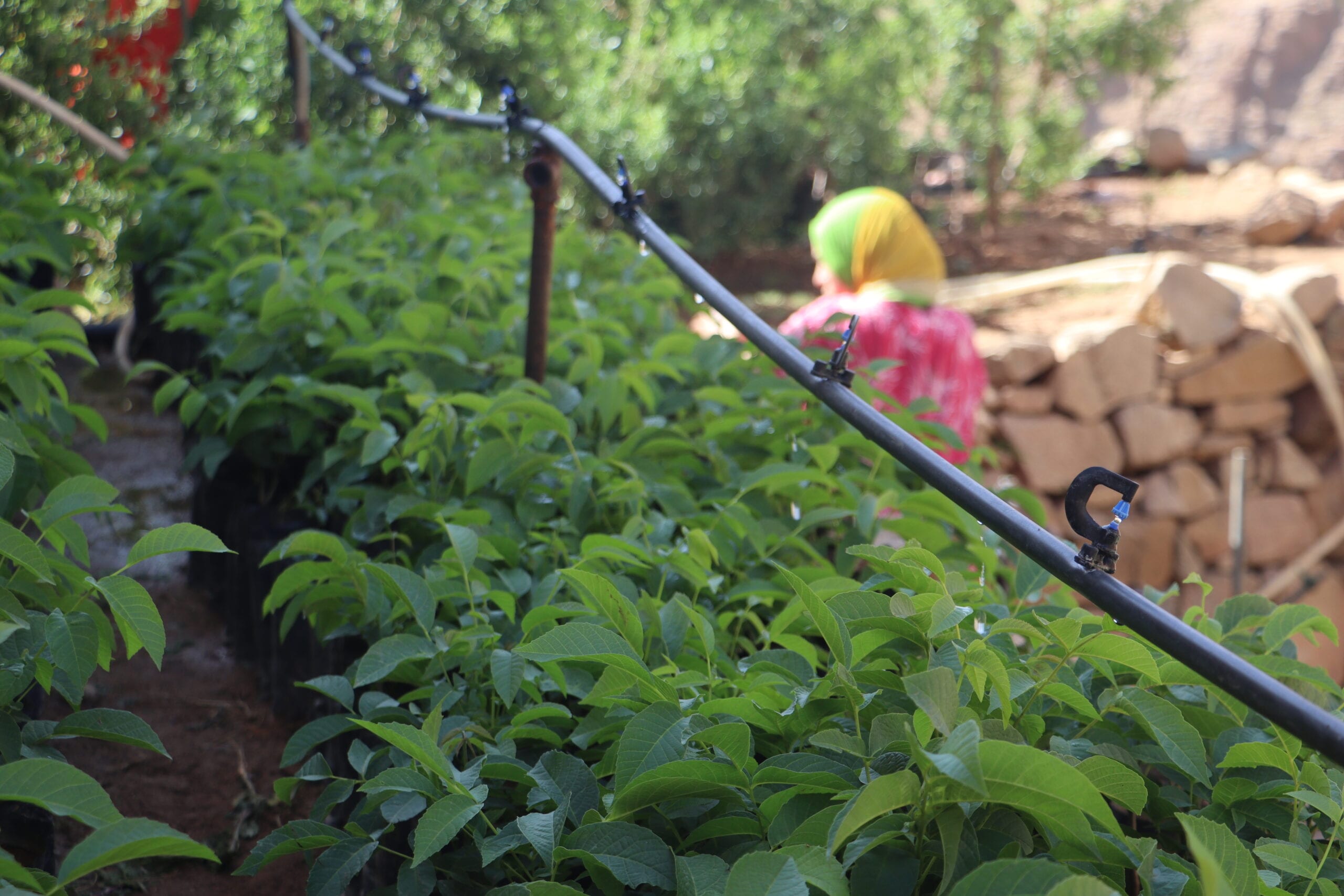
By Jasiah Hasan In the past fifty years, Morocco’s population has nearly tripled. Mass migrations and urbanization have pushed more than half of the growing population into cities, producing huge shanty towns. Residents lack access to clean water and sanitation services. Such barriers can lead to higher risk of waterborne diseases, such as malaria and
LEAP4FNSSA’s Second Dissemination Event
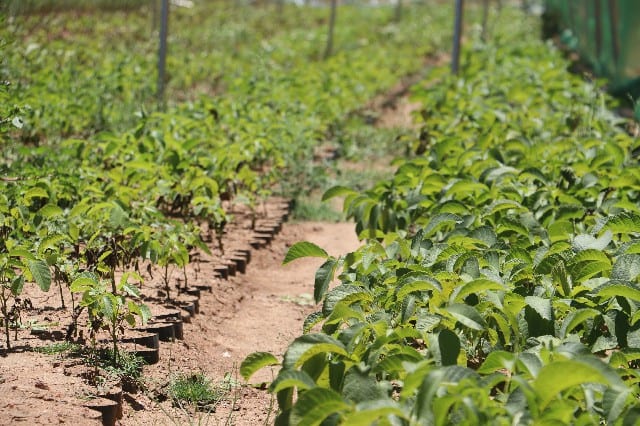
By Jasiah Hasan, HAF-UVa Intern On July 19, 2021, LEAP4FNSSA hosted a webinar event to share and emphasize the importance of collaboration between the African Union and the European Union. The event focused specifically on collaborations regarding agricultural innovations and food and nutrition security. LEAP4FNSSA is a project dedicated to supporting the implementation of long-term
Harnessing Science for Sustainable Agriculture
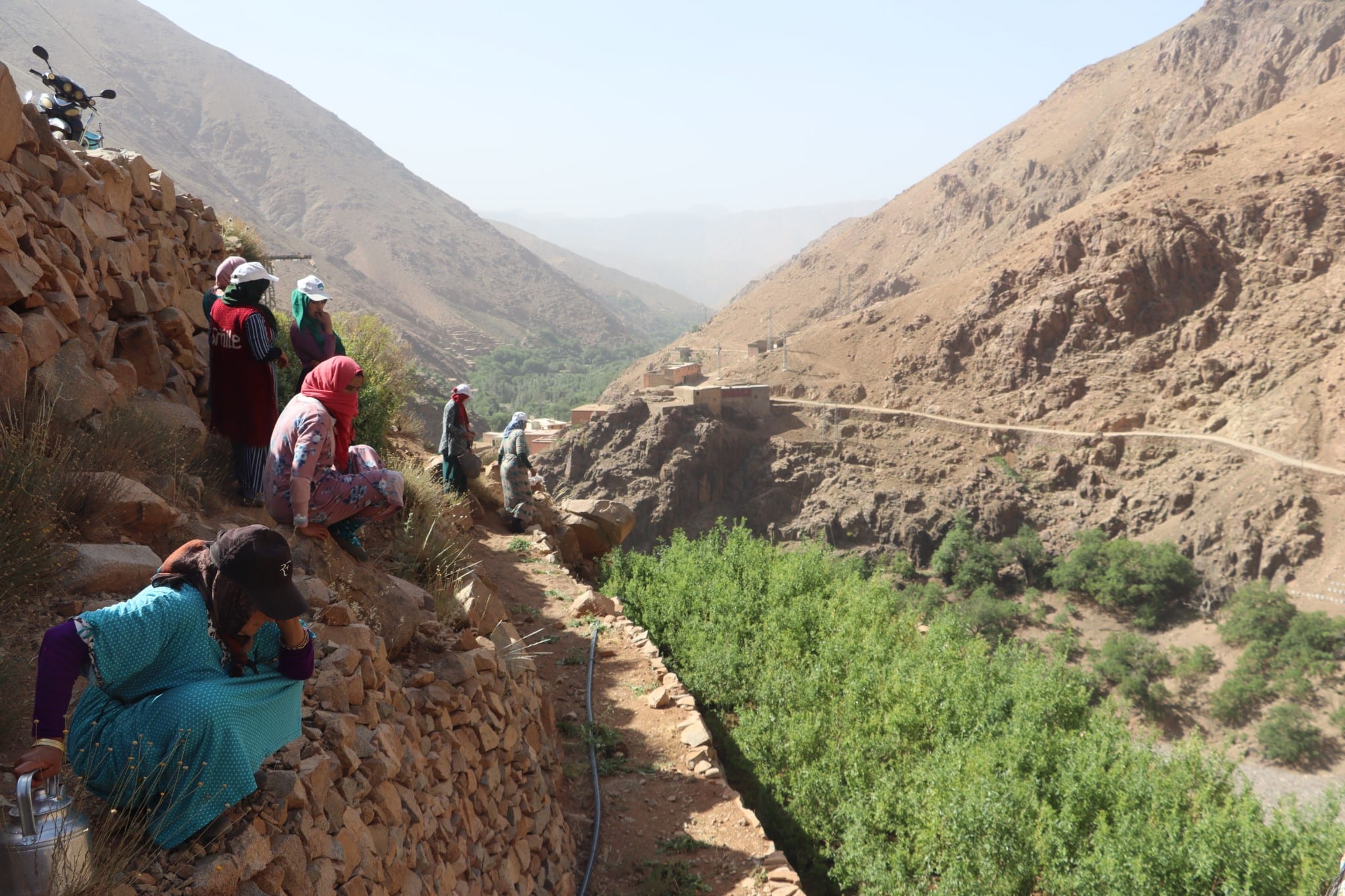
By Samirah Jaigirdar A fruit tree nursery managed by members of the Aguerzrane Women’s Cooperative in Morocco’s High Atlas, a project that has benefited from the expertise provided by the USAID-F2F Volunteer Program (HAF, July 2021). The Sustainable Development Goals (SDGs) or Global Goals are a collection of 17 interlinked global goals designed to achieve
Between the Anvil of Water and the Hammer of Spirituality
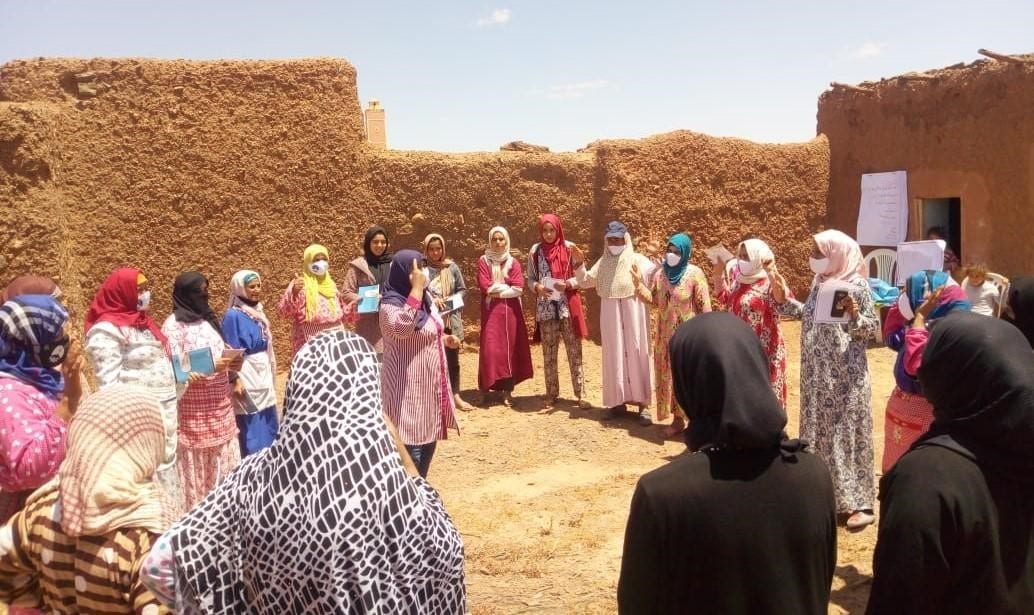
By Fatima Zahra Laaribi HAF Program Manager Twenty-three women from the village of El Kdirat in the Jnane Bouih commune of the Youssoufia province, participated in a four-day Imagine women’s empowerment workshop that took place between June 21-24. There are approximately 36 households in El Kdirat, the average size being between 6 to12 people. There
Mutually Inclusive: The Relationship Between Development and Human Rights
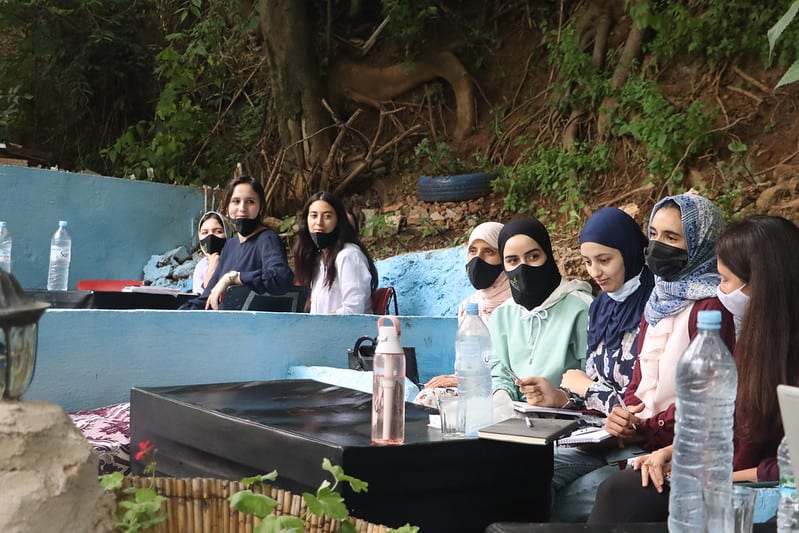
Aira Matin UVA-HAF Intern This word “development” is quite heavy. It is not just a matter of improving the economic conditions of a society, but of changing lives and trying to build a better present and future. As a student from the US, it’s valuable to recognize the position that countries such as the US
Témoignage d’une assistante d’aide sur le traitement des dossiers et leur état d’avancement – Avantages et difficultés

Kawtar El Kadi – Assistante d’aide juridique Photo prise par Nabil, coordinateur du programme à la CJFD de Fès, en présence des cliniciens chargés du traitement des dossiers. La clinique juridique de la Faculté des Sciences Juridiques, Économiques et Sociales de Fès (FSJES) a été fondée en 2019 en partenariat avec la Fondation du Haut
Uniting Pathways for Landscape Restoration
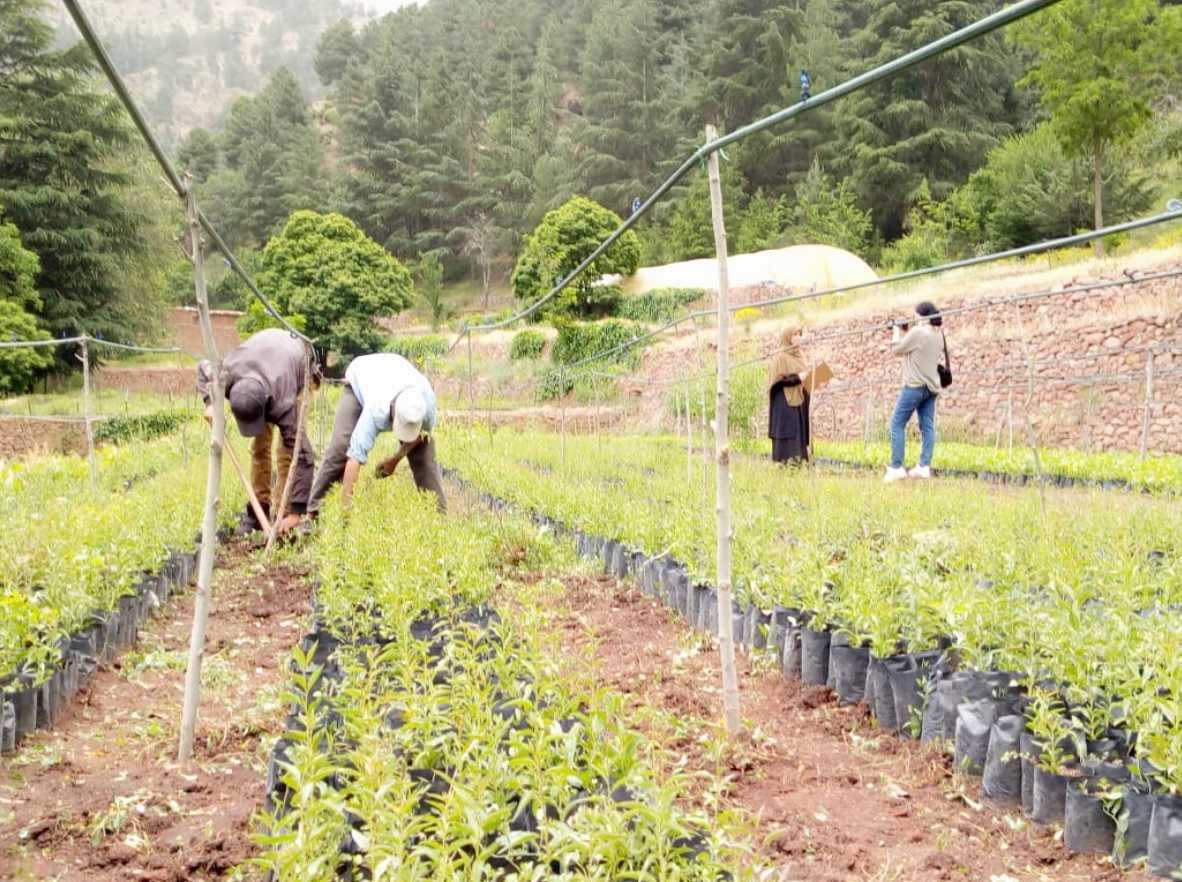
By: Samarth Saksena North African and Middle Eastern nations can combat climate change through well planned landscape restoration initiatives leading to carbon sequestration, but also indirect benefits like job creation, food security, and improved livelihoods and resilience. Restoration initiatives are best carried out when the right partnerships are formed between all sectors of society. The


